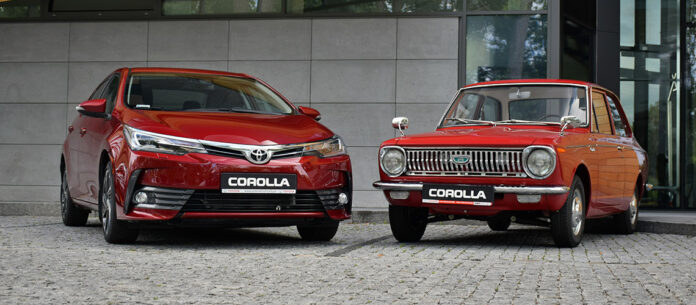Choosing the right car can be a daunting task, especially with the ever-changing landscape of the automotive market. In 2024, several factors contribute to this complexity, from ongoing supply chain disruptions to fluctuating pricing. This comprehensive guide will equip you with the knowledge and strategies to navigate the current market and make an informed decision, whether you’re leaning towards a brand-new car or a reliable used option.
New vs. Used: Weighing Your Options

Before diving into the nitty-gritty of specific choices, it’s crucial to evaluate your personal needs and budget. What type of vehicle best suits your lifestyle and driving habits? Are you looking for a fuel-efficient commuter car, a spacious family vehicle, or perhaps a rugged SUV for outdoor adventures? Once you have a clear picture of your requirements, consider the financial implications of your purchase. How much can you comfortably afford to spend on the car itself, including taxes, registration, and ongoing costs like insurance and maintenance?
With a clear understanding of your needs and financial limitations, let’s explore the pros and cons of both new and used cars:
Buying New:

Pros:
The latest technology: New cars boast cutting-edge features like advanced driver-assistance systems (ADAS), sophisticated infotainment systems, and fuel-saving technologies.
Enhanced safety: Modern cars are engineered with the latest safety features, including airbags, crumple zones, and electronic stability control (ESC), providing peace of mind for you and your passengers.
Comprehensive warranty coverage: New car purchases typically come with a manufacturer’s warranty, offering protection against unexpected repairs for a set period. You can drive off the lot with the confidence of knowing you’re covered in case of any unforeseen issues.
Pristine condition: You’ll be the first owner, taking possession of a car in immaculate condition, free from wear and tear.
Cons:
Higher initial cost: New cars generally come with a steeper price tag compared to used options. This can be a significant hurdle, especially for budget-conscious buyers.
Faster depreciation: New cars tend to depreciate in value faster than used ones, particularly in the first few years of ownership. This is something to consider if you plan to sell your car in the near future.
Limited availability: Ongoing supply chain disruptions may affect the availability of your desired new car model, potentially leading to longer wait times or limited selection.
Buying Used:
Pros:
Lower purchase price: Used cars offer significant savings compared to their new counterparts, allowing you to stretch your budget further.
Wider variety of options: The used car market boasts a vast selection of vehicles across various makes, models, and years, giving you more flexibility in finding a car that perfectly suits your needs and preferences.
Slower depreciation for some models: While depreciation is inevitable, certain reliable used car models tend to hold their value better than others, offering an advantage in the long run.
Cons:
Potential for hidden repairs or mechanical issues: As with any used car, there’s always a risk of encountering unforeseen repairs or mechanical problems. A thorough inspection and potentially seeking professional advice are crucial to mitigate these risks.
Lack of the latest features: Used cars may not come equipped with the most cutting-edge technology or safety features found in newer models. This could be a factor if you prioritize these aspects in your car choice.
No manufacturer’s warranty unless certified pre-owned: Unless you opt for a certified pre-owned (CPO) car, you won’t benefit from the peace of mind offered by a manufacturer’s warranty, meaning you’ll be responsible for any repairs that arise after the initial purchase.
By carefully weighing the pros and cons of each option and aligning them with your individual needs and budget, you can take the first step towards making an informed and confident decision in your car buying journey.
Financing Your Car Purchase

Regardless of whether you choose new or used, financing your purchase is a common option. It’s essential to explore different loan options, such as those offered by banks, credit unions, or dealerships. Budgeting for monthly payments and insurance is key to ensure your purchase remains within your means. Remember, negotiating for favorable interest rates and terms can significantly impact your overall financial commitment.
Considering the Total Cost of Ownership (TCO)
Looking beyond the initial purchase price is crucial. Understanding the TCO helps you make a well-informed decision. This includes factors like:
Fuel costs: Consider the car’s fuel efficiency and calculate estimated fuel expenses based on your driving habits.
Maintenance and repairs: Research the average maintenance costs associated with your chosen make and model. Factor in potential repairs as the car ages.
Long-term value retention: New cars generally depreciate faster than used ones. However, some used car models hold their value better than others.
Inspection and Test Drives: Ensuring a Wise Decision
For used cars, conducting a thorough inspection is vital. This can be done independently with a comprehensive checklist or by a certified mechanic. Test drives are equally important, giving you a firsthand feel for the car’s performance, handling, and any potential red flags. Seeking expert advice from a trusted mechanic or car enthusiast can provide valuable insights and peace of mind before finalizing your purchase.
Closing the Deal: Important Steps
Once you’ve found the right car and secured financing, the final steps involve:
Negotiating the final price and terms with the seller, whether it’s a dealership or a private seller.
Completing the necessary paperwork and securing proper insurance coverage before driving off the lot.
Taking ownership and enjoying your new car! Remember to familiarize yourself with the car’s features and schedule regular maintenance to ensure its longevity.
Selling Your Old Car (if applicable)

If you plan to trade in or sell your existing car to make way for the new one, explore different selling options. This could involve selling to a dealership, using online platforms, or finding a private buyer. Preparing your car for sale by thoroughly cleaning it and addressing any minor issues can maximize its value. Negotiating with buyers and finalizing the transaction require clear communication and adherence to legal guidelines.







